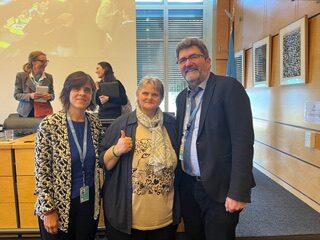UK Government admits problems with children’s social care
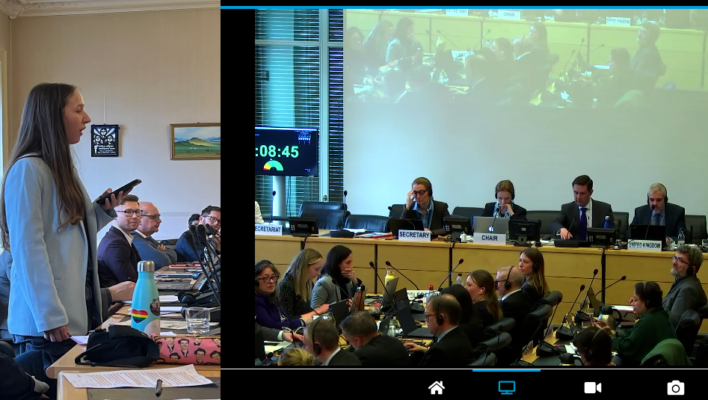
Above: Aurelia Drayak, 19, speaks for ATD at the United Nations.
On 13-14 February 2025, four members of ATD Fourth World were in Geneva to take part in the United Nations review of the UK’s compliance with the International Covenant on Economic, Social and Cultural Rights (ICESCR). They spoke passionately about the impact of poverty on children’s social care, an issue about which ATD has submitted substantial evidence to the UN, in 2023 and again last month.
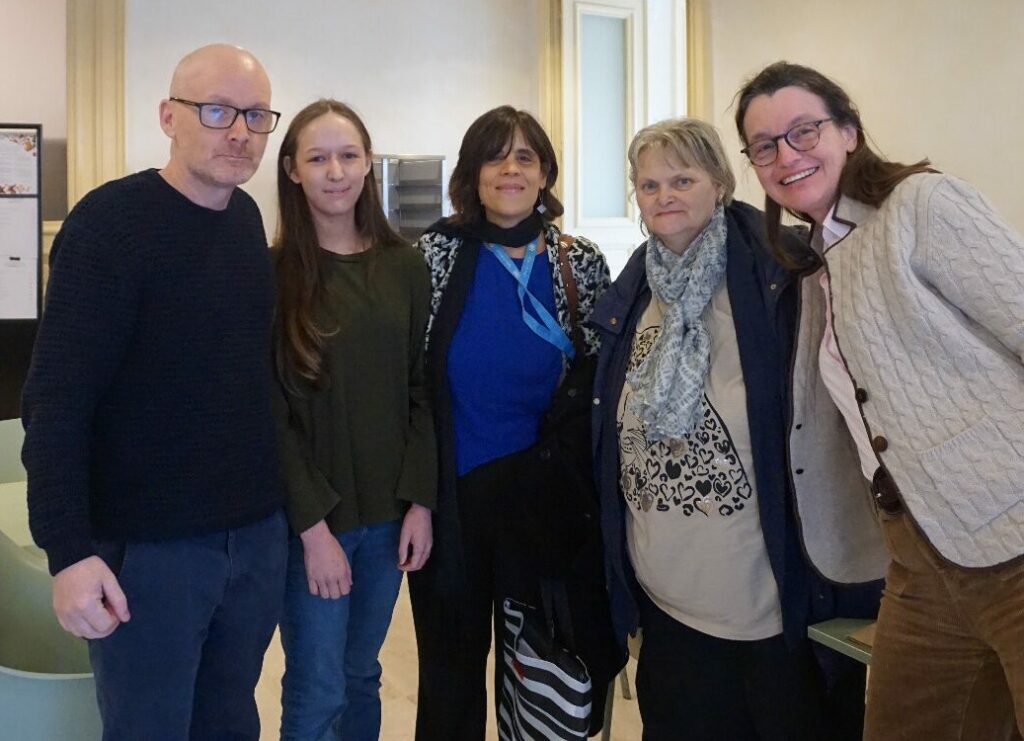
This led directly to UN expert Julieta Rossi raising the concern that children’s social care “is overtly focused on intervening at crisis point and removing children from their families”, as explained in this blog post by Dr. Koldo Casla.
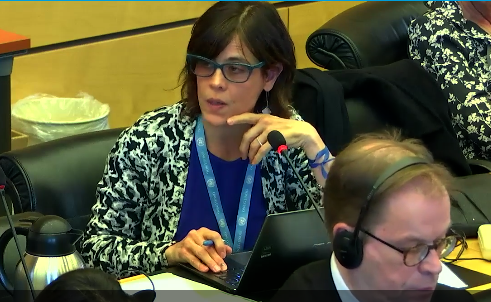
In its response, the UK government agreed with this assessment and promised to begin shifting the focus away from crisis intervention to ensure that children stay with their families. Koldo adds, “This is the first time, as far as I can gather from my own research, that the CESCR has raised the issue of children in care from families in poverty in relation to any country. The UK Government admitted failure, and that it has to change. It’s something to hold them to account for in the future.”
Helen Flynn of Just Fair UK observes: “Rossi in particular really seemed to get it. This work by ATD has created a whole new space for the protection of the family under the covenant.”
Dr. Simon Haworth, Chair of ATD’s Board of Directors and co-author of the 2024 report “Eroding the right to family life: Human rights violations in Britain’s child protection systems”, remarks: “We had good conversations with Julieta Rossi and other committee members raising the denial of the right to family life for families in poverty. And it’s important that questions were asked of the UK government about the brutality of the children’s social care system. But their answers were generic and generated little faith for grassroots organisations who were listening. Families in poverty need material and social resources to function and thrive; but they are consistently denied these resources. Until child poverty strategies are linked with children social care policies, little will change. This is the start of a journey; but that journey will be long before we can agree on ways to make and measure meaningful progress.”
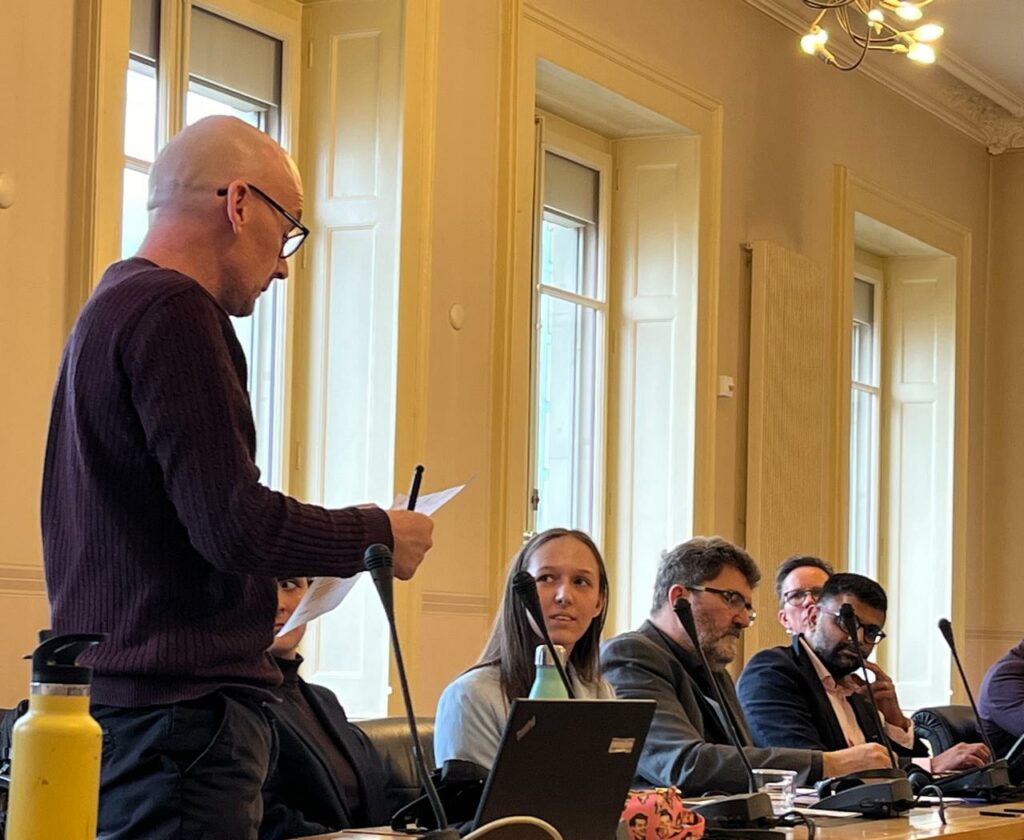
Concluding Observations
On 12 March, CESCR published its Concluding Observations about the UK. ATD is particularly pleased to see, in the section about poverty, this passage:
“45 Recalling its previous recommendation, the Committee urges the State Party, along with the devolved governments of Northern Ireland, Scotland and Wales: […]
“(c) To allocate sufficient resources to the children’s social care system across all jurisdictions with a view to supporting low-income families, to prevent the separation of children from their family environment and their institutionalization or placement in alternative care and, in coordination with anti-poverty strategies and social security policies, to take into account the recommendations made by the Committee on the Rights of the Child (CRC) in that regard”.
The CRC recommendations referred to are found in paragraph 38 of document CRC/C/GBR/CO/6-7, which includes this passage:
“The Committee urges the State party:
“(a) To invest in measures to prevent and reduce the number of children placed in alternative care by, inter alia, allocating sufficient resources for early intervention and preventive services […];
“(b) To allocate sufficient resources for the implementation of the recommendations made in the report of The Independent Review of Children’s Social Care, including the provision of advocacy services for all children as an opt-out rather than an opt-in service, with a view to ensuring that all children in alternative care: (i) have access to independent, well-resourced, child-friendly advocacy services and specialized support, including mental health and therapeutic services; and (ii) are able to maintain contact with their family members and communities, including by ensuring their access to independent visitor services in Wales; […]
“(d) To develop a legislative framework for ensuring a child rights-based approach to the support of children placed in alternative care far from their place of residence, […] and ensure that such placements take place only as a measure of last resort;
“(e) To prohibit and prevent the placement of children in secure care, residential care homes lacking appropriate safeguards or unregulated alternative care, including hotels and bed-and-breakfast accommodation;
“(f) To allocate sufficient funds for family- and community-based care options for children who cannot stay with their families and facilitate the reintegration of children into their families and communities whenever possible;
“(g) To ensure that children are heard in decisions affecting them in alternative care placement and throughout their stay and that the relevant authorities and professionals have the technical capacities required to guarantee respect for children’s views in alternative care”.
Growing rights, together
ATD’s delegate Amanda Button travelled as part of a wider delegation for GRIPP, the Growing Rights Instead of Poverty Partnership. This group, led by people with lived experience of poverty, and supported by Amnesty International UK, Just Fair, and the University of Essex Human Rights Centre, has spent six years preparing to speak to the UN, as they recount in this blog post.
The GRIPP delegation was closely followed by GRIPP members who stayed behind, some of whom created videos with their message for the UN: by Angela and Taliah about why lived and living experience of poverty must be part of the solution; by Mandy about how the system of social security creates fear; and by Alimamy, explaining that despite hostile politics, our communities refuse to be divided. In Tracey’s video, she comments on the contrast in having travelled “800 miles away from Teesside, a million miles away from our lived reality”. In a video posted by Amnesty on BlueSky, Julie and Amanda spoke about their hopes for this process with the UN, which will conclude in March when the UN releases its Concluding Observations about the UK.
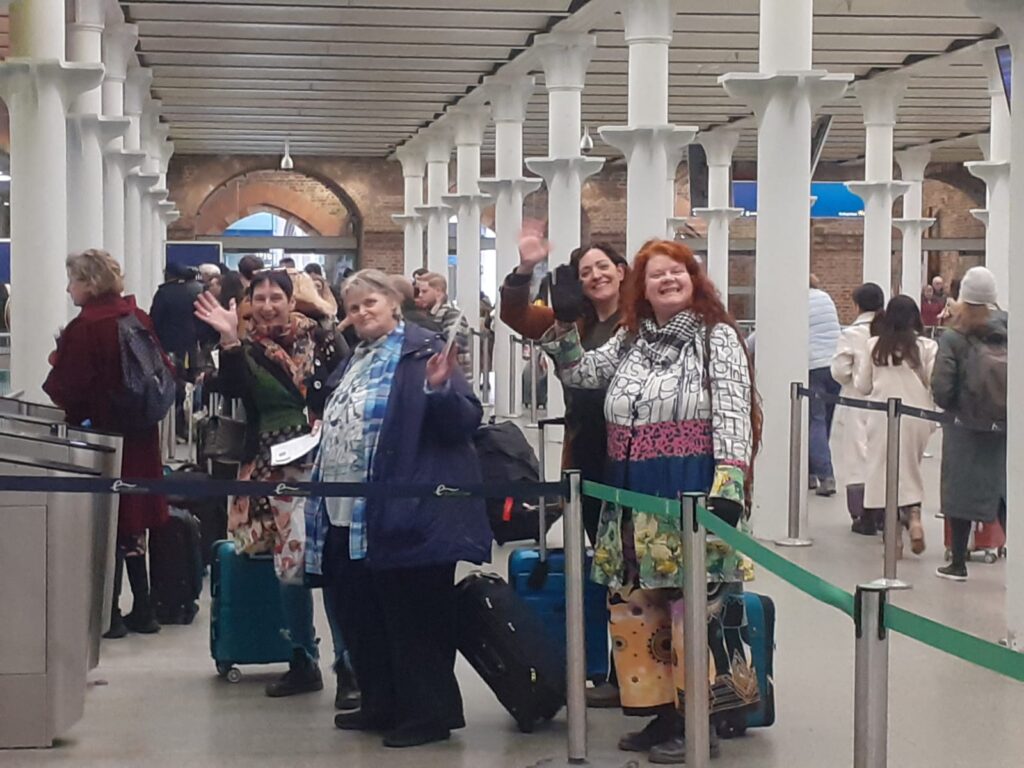
Youth Voices
ATD’s Youth Voices project received a travel grant from the Equality and Human Rights Commission to make the trip to Geneva. In trying to imagine how to bridge the gap between their experience and generation and those of the UN Committee members, they hit on the idea of creating a printed newsletter with a crossword puzzle based on their own submission about ICESCR, submitted on behalf of the End Child Poverty Coalition. To see the newsletter, please click here: 2025-2-YouthVoices-ICESCR-Newsletter
Speaking to the UN Committee, Aurelia said:
“I am 19 years old, and I am here today representing Youth Voices. We are a project that originated from the need of children and young people with lived experience of poverty and social service interventions to have a say in the conversations concerning our lives.
“Our submission is invaluable because Youth Voices, as young researchers with lived experiences of poverty, are able to understand and create spaces that those with shared lived experiences can speak in, without the fear and shame that they face with professionals. This connection is what makes it possible to research and support those in poverty with the dignity and respect they deserve.
Cruelty whose impact cannot be overstated
“The impact of discrimination against those in poverty is already profound; when young people and families face dehumanising and ignorant treatment from social care and other professionals their families are cruelly and unnecessarily torn apart by those who they are supposed to trust and who have significant power over them. The impact of this can not be overstated; it affects every aspect of life for every member of the family and follows them for generations.
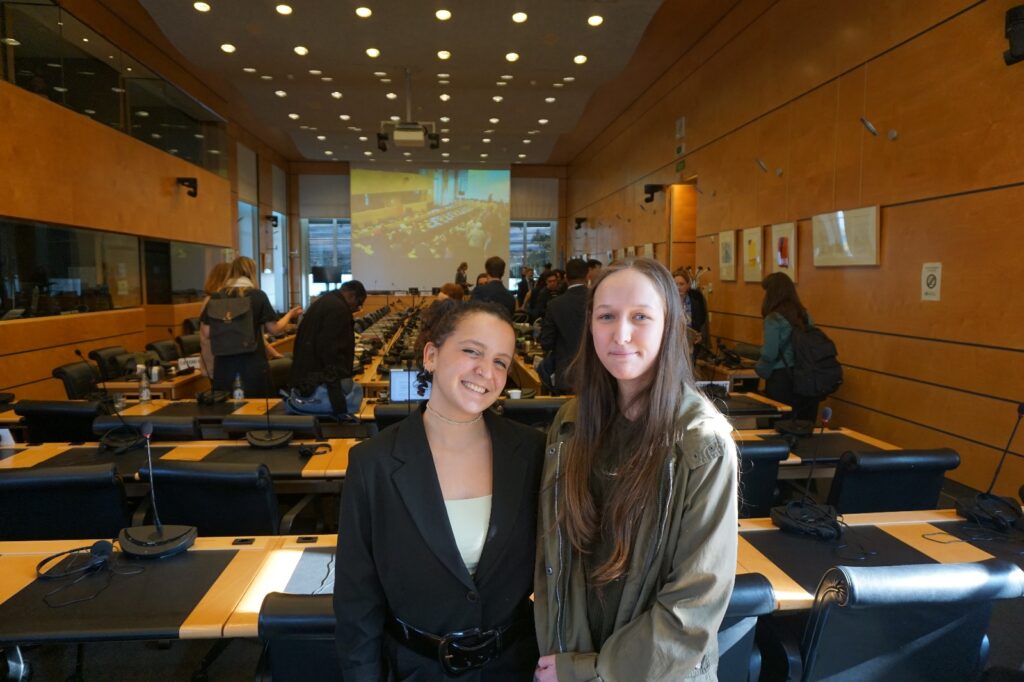
“Please tell the UK government that until we start holding professionals accountable nothing will change. That the continuous systemic failure of the care system is a direct result of the lack of accountability for rights violations against children, young people, and families.
“We are here because the UK government has ratified the Covenant on Economic Cultural and Social Rights. We know that in theory, we have those rights. We have the right to family life, but we keep on hearing how it is continually violated and not being enforced. If your committee doesn’t hold the UK government accountable for these infringements of the law, who will?
“I don’t speak today here as myself but I’m speaking about 83,630 children who were removed from their families in the UK in 2024. As one of the young people we spoke to said, ‘We should be treated as human beings with rights.’ And that’s what we need from you all today: to stand beside us, to recognise us as human beings, to hold the UK government accountable, and to help us achieve what we are supposed to already have: human rights.”
